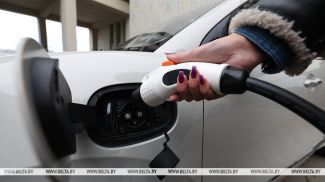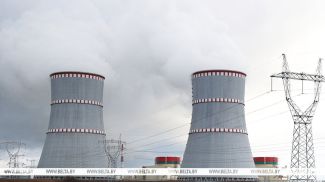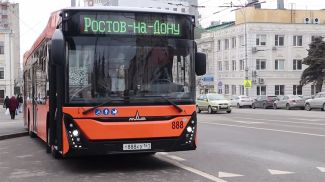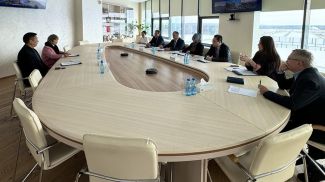MINSK, 26 May (BelTA) – Belarus-Russia joint action on import substitution should be scaled up across the Eurasian Economic Union (EAEU), Belarusian Prime Minister Roman Golovchenko said at an online plenary session of the Eurasian Economic Forum on 26 May, BelTA has learned.
According to him, there are two problems which need to be solved amid sanctions pressure. These are import substitution for critical goods and the development of new high-tech and competitive industries. “I believe that the experience of cooperation between Belarus and Russia can be used here. It is primarily the work on import substitution. Such projects are most actively implemented within the Union State. We have formed maps of industries in such areas as car manufacturing, agricultural engineering, machine tool technology, energy, microelectronics, and pharmaceuticals,” said Roman Golovchenko.
The Union State is working on measures to replace critical imports and assimilate a new range of components and products at existing enterprises. “Tentatively speaking, they have taken off the shelves the results of the R&D works that were waiting for their time. They had no use before, because it was easier for manufacturers to import these products,” the prime minister said.
Another area is the development of new industries, joint work on the formation of business plans for new investment projects and identification of sources of financing. “The first quarter of this year witnessed a growth of mutual investment in the area,” said Roman Golovchenko.
“I am sure that such work should be carried out throughout the Eurasian Economic Union as well. This will help us cope with one of the most acute problems, such as the underutilized production capacity of heavy, light and manufacturing industries in the EAEU. This will also help us deal with the problems related to quality technological upgrading and labor productivity growth,” the prime minister said.
The Eurasian Economic Forum is held in Bishkek on 26 May. The forum is an opportunity to have a direct interaction on the most topical issues of the Eurasian Economic Union, business, green energy, interregional ties and cooperation.
The business program consists of six panel discussions to consider prospects for the strategic development of Eurasian integration, opportunities for economic stability of the EAEU states, issues in industry, agro-industry, energy, transport infrastructure, digital agenda, and new areas of cooperation.













